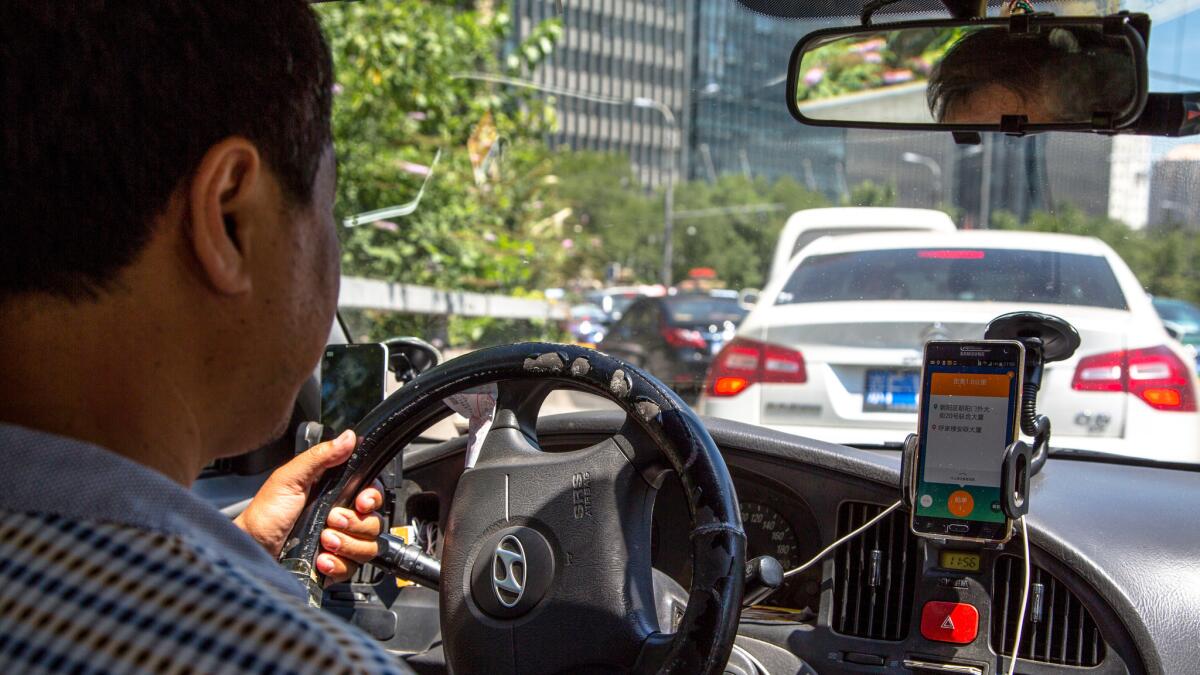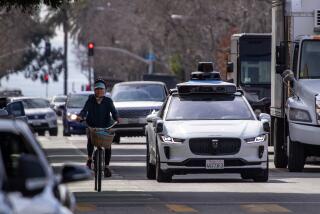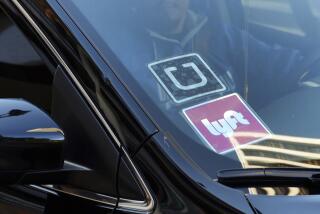In a boost for Uber, China legalizes ride-hailing services

Lifting a cloud of regulatory uncertainty hanging over the future of Uber and its competitors in China, the government on Thursday legalized app-based ride-hailing services, but announced new licensing requirements and other rules.
The new regulations, to take effect Nov. 1, require drivers to have at least three years of driving experience and no violent criminal or drunk-driving history. The ride-hailing companies and driver vehicles must be registered with authorities.
Uber called the new rules a “historic starting point” and hailed China for becoming the first major economy to adopt comprehensive nationwide rules on ride-sharing. The Transportation Ministry, in conjunction with six other government ministries, issued the rules.
“We welcome the new regulations, which send a clear message of support for ride-sharing and the benefits that it offers riders, drivers and cities,” said Zhen Liu, senior vice president of corporate strategy for Uber China.
Uber, which has a strategic partnership with giant Chinese Internet firm Baidu, said it is already operating in more than 60 Chinese cities and aims to raise that to 100 by the year’s end.
The nationwide rules could save Uber from having to fight in individual markets for consistent regulation, like it did and continues to do in the U.S, where the ride-hailing industry is regulated at the state and city level, depending on the market.
The San Francisco company has grand ambitions for its Chinese expansion, and analysts have said much of its $62.5-billion valuation hinges on its potential to own swathes of market share in the world’s most populous nation. This year, Uber Chief Executive Travis Kalanick said the company was losing $1 billion a year trying to establish itself in the Chinese market.
But whether the new rules will do anything to alleviate the competitive challenges facing Uber in China is unclear. Even with Chinese regulators green-lighting Uber’s business, it faces a fierce rival in Didi Chuxing, the largest ride-hailing and taxi network in China, which controls upwards of 80% of the market.
In China, Didi has one-upped Uber in fundraising, partnerships and driver subsidies. The company recently received a $1-billion investment from Apple, announced a partnership with Uber’s main competitor in the U.S., Lyft, and remains bullish on its home turf.
Didi Chuxing praised Chinese regulators’ decision to allow ride-share platforms to set their own pricing.
As in many countries, the rise of ride-hailing services has bred confrontations with taxi drivers in China. Cabbies have complained that the unregulated services -- which allow drivers to use their personal vehicles to give rides and have offered huge initial subsidies to drivers and riders in a bid to grab market share -- are undercutting their business and operating without sufficient oversight.
The new rules empower local taxi administration authorities to manage the ride-hail licensing platforms. In a statement, Didi noted that local governments are given “a certain discretion” to determine operating requirements. “We call for local authorities to adopt market-driven approaches that encourage innovation and new business models,” the company said.
The new rules add pressure on companies like Didi to harmonize their businesses with taxi operators.
Didi promised it would invest millions of dollars to “accelerate the integration of the online ride-hailing and taxi services through strategic partnerships with regulators, taxi companies and drivers.”
“Our shared goals are to facilitate the integration of the taxi and ride-booking industries, to help raise operating efficiency and driver income, and to provide better transportation services for Chinese passengers,” Didi said.
Among the rules outlined Thursday, vehicles can seat no more than seven passengers and must be equipped with GPS systems.
Vehicles must be registered and have no more than 372,000 miles on their odometers, or be less than 8 years old, whichever comes first.
The status of part-time drivers apparently is a question mark under the new regulations. Didi said it hopes that “local practices will allow for separate treatment of part-time drivers to foster … reform in the transportation industry.”
The rules are similar to the way companies such as Uber are regulated in California, where drivers are expected to pass background checks, operate relatively new vehicles and, in cities such as San Francisco, register as independent contractors with the city.
The company continues to face pushback in other markets, though. In France and Spain, regulators have cracked down on UberPop -- a service known in the U.S. as UberX, in which anyone with a car can become an Uber driver -- imposing fines against the company’s executives for operating an illegal taxi service.
Yingzhi Yang and Nicole Liu in The Times’ Beijing Bureau and Times staff writer Tracey Lien in San Francisco contributed to this report.
Follow me on Twitter @JulieMakLAT.
ALSO
Transcript: Obama’s Democratic National Convention speech
Reporter who added some swagger to the D.B. Cooper legacy comes clean
Mysterious streak of light across night sky is re-entry of Chinese rocket, expert says
UPDATES:
3:40 p.m.: This article was updated with additional reporting and context.
This article was originally published at 3:50 a.m.







